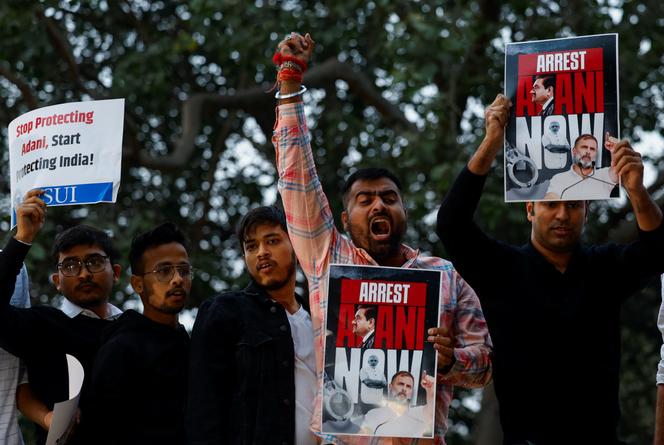


Long unknown to the general public outside India, 62-year-old Gautam Adani, head of the world's largest conglomerate, is back in the spotlight. After being accused, in 2023, of the "largest con in corporate history" by the Hindenburg investment company, the Indian businessman, a close friend of Indian Prime Minister Narendra Modi, is now in the sights of the American justice system.
On November 20, the tycoon was indicted by a New York federal court for fraud and corruption, on suspicion of having paid over $250 million in bribes to Indian officials to secure lucrative public contracts in the solar energy sector. The group rejected the accusations, saying they were "baseless" and promised to contest them in court. The opposition is calling for the billionaire's immediate arrest and is accusing Modi of "protecting" his ally.
The Indian prime minister has not breathed a word, but the news is a heavy blow. The two men have worked together for over two decades. The duo is so close-knit that the opposition has dubbed them "Modani." The success of one is inextricably linked to the other, and vice versa.
The son of a textile merchant from a modest background, Adani has enjoyed a meteoric rise over the past three decades. In the shadow of Modi, he has built up a gigantic family empire, whose market capitalization reached nearly $170 billion before the American justice system's revelations. The group's ramifications now extend to almost every continent. From energy to military drones, ports to aerospace and coal mining to agriculture, the tycoon has aligned himself with the government's strategic priorities.
The two men have a similar profile, with little academic talent but a strong sense of ambition. Their common history is sealed in Gujarat, western India, their homeland and the political stronghold of Modi, who was its head of government from 2001 to 2014. When Modi was widely publicly blamed after the anti-Muslim pogroms of 2002, including by the business community worried about the impact of the events on the economy, Adani refused to turn his back on him. To erase the stain of the massacres, Modi launched the Vibrant Gujarat global summit, a major event sponsored by the industrialist to attract investors.
Adani's proximity to Modi has opened the door to major public contracts. Until his meeting with the politician, the man had tried his hand at selling diamonds in Mumbai, then plastic, without much success. In 1993, he acquired land from the regional government of Gujarat, then headed by Chimanbhai Patel, for the construction of the port of Mundra, along the Arabian Sea. The project took off after Modi became head of state in 2001, granting him authorization to create a special economic zone, exempt from common tax rules. He'd hit the jackpot. Adani transformed the former marshlands and farmland into a gigantic port and logistics complex, India's first privately funded one.
You have 72.38% of this article left to read. The rest is for subscribers only.
